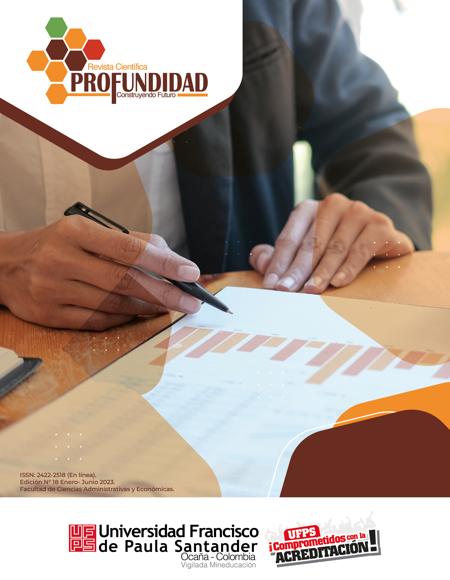Relational capital as an enhancing element of the hotel sector
Capital relacional como elemento potenciador del sector hotelero
Main Article Content
The purpose of this research is to analyze relational capital as an element that enhances companies in the hotel sector in Valledupar, Cesar, Colombia. The implemented methodology was a quantitative, non-experimental and cross-sectional design, counting on a population census, regarding the typology it was framed in a descriptive and field research, Epistemologically, the paradigm of this research is positivist with an inductive method.
The information was collected through the application of a questionnaire prepared by the researchers called (ER-FS-0220) consisting of 33 items that evaluates relational capital through three dimensions: Dimensions of relational capital, Elements of relational capital and indicators of efficiency of relational capital. Through the analysis of the results obtained by the instrument, it was concluded that the relational capital as an element that enhances the hotel sector in the city of Valledupar is high in the results of the arithmetic means of the dimensions and indicators reviewed according to the proposed scale.
Downloads
Article Details
Alama (2001) Capital intelectual y resultados empresariales en las empresas de servicios profesionales de España, Universidad Complutense de Madrid, ProQuest Ebook Central. España.
Arias, F. (2012), El proyecto de investigación: Introducción a la metodología científica, Sexta edición, Editorial Episteme, Caracas, Venezuela.
Arenal L., C. (2017). Técnicas de venta: UF0031. Editorial Tutor Formación.
Ayala, J. (2016). Gestión de compras. Editorial Editex.
Alloza, A, Carreras, A y Carreras (2013): Reputación Corporativa. Madrid: LID Editorial.
Baena G. (2014). Metodología de la investigación. Grupo Editorial Patria.
Blanco García, C. (2013). Comunicación y atención al cliente. Macmillan Iberia, S.A.
Drucker, P. (1998). La sociedad postcapitalista. Bogotá: Norma.
Fombrun, C. y rindova, V. (2000): The road to Transparency: Reputation Management at Royal Dutch/Shell, in Schultz, M., Hatch, M., Larsen, DOI: https://doi.org/10.1093/oso/9780198297789.003.0006
M., Fombrun, C., & Rindova, V. (2002) [eds.], The Expresive Organization – Linking Identy, Reputation and the Corporate Brand. Chapter 6, pp. 77 - 96.
García (2001), Gestión de la relación con clientes, fundación CONFEMETAL, Madrid, España.
Gómez M. (2006), Introducción a la metodología de la investigación científica, Editorial Brujas, Argentina
Hunt, H.K. (1977). Conceptualización y Medición de la Satisfacción e Insatisfacción del Consumidor. Cambridge: Marketing Science Institute.
Kerlinger, F. (2002). Enfoque conceptual de la Investigación del comportamiento, McGrawHillEduaction
Kotler, P. (2003), Dirección de Mercadotecnia, Octava Edición, McGraw-Hill, España.
Navarro C. (2014), Epistemología y metodología, editorial patria, México.
Niño V. (2011), Metodología de la Investigación, Ediciones de la U, Bogotá, Colombia.
Oliver, R.L. (1997). Satisfacción: una perspectiva conductual sobre el cliente. Nueva York: McGraw-Hill.
Sánchez, J. y Quintero, J. (2006), La cadena de valor: Una herramienta del pensamiento estratégico, Telos, vol. 8, núm. 3, septiembre-diciembre, 2006, pp. 377-389 Universidad Privada Dr. Rafael Belloso Chacín Maracaibo, Venezuela
Uribe, H. (2006) Introducción a la teoría de la contabilidad financiera. Medellín: Universidad EAFIT.
Van Horne J., Wachowicz, J. (2002), Fundamentos de administración financiera, Pearson Educación, México
Vásquez, A. (2017), Plan de mejoramiento en el área de compras en la empresa comunicaciones efectivas, Institución Universitaria Tecnológico de Antioquia, Medellín, Colombia.
Villa (2014) Capital relacional y construcción de ventajas competitivas, caso de estudio en la empresa Induservi SAS, Universidad Nacional de colombia, sede Manizales. Tesis doctoral.










